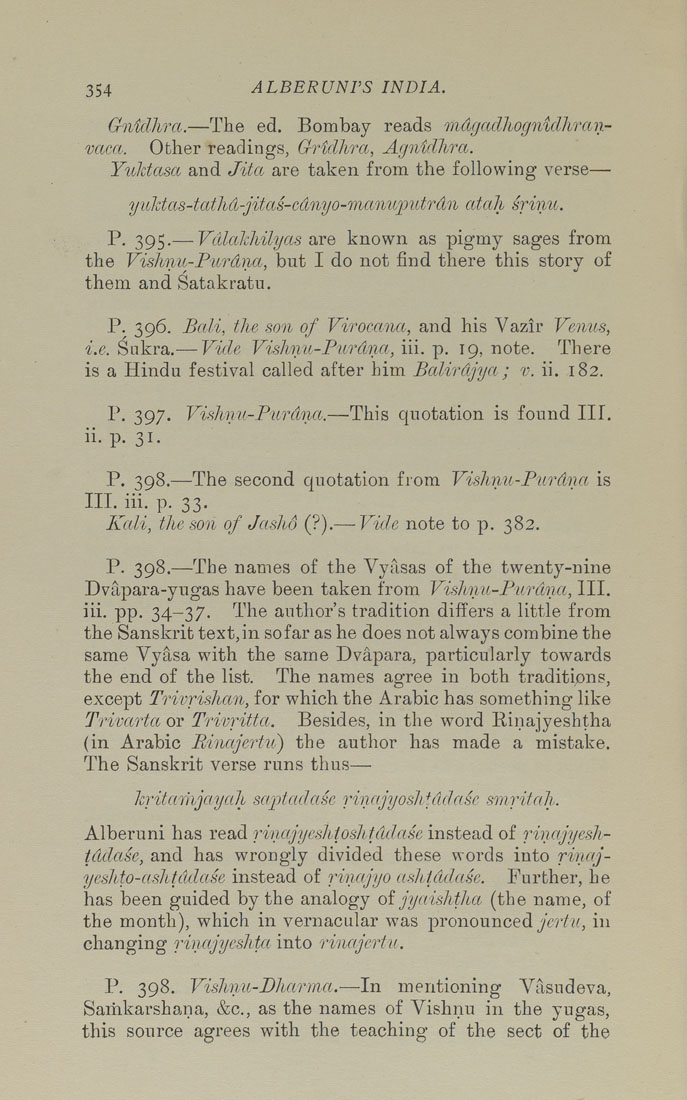354 ALBERUNTS INDIA.
Gnidhra.—The ed. Bombay reads mdgetellhognidhrctn-
vctcet. Other readings, Grielhret, Agnidhrct.
Yuktctsa and Jitct are taken from the following verse—
yitktcts-tctthd-jitcts-cetnyo-mctnuqnttrdn etteth srinu.
P. 395.—-Vdlakhilyets are known as pigmy sages from
the Vishnu-Purdnet, but I do not find there this story of
them and Satakratu.
P. 396. Bali, the son of Virocanet, and his Vazir Venus,
i.e. Sukra.— Vide Vishnu-Purdnet, iii. p. 19, note. There
is a Hindu festival called after him Bctlirdjyct; v. ii. 182.
P, 397. Vishnu-Purdna.—This quotation is found III,
ii. p. 31.
P. 398.—The second quotation from Vishnu-Purdnet is
III. iii. p. 33.
Kali, the son of J a sit<j (?).— Vitle note to p. 382.
P. 398.—The names of the Vyasas of the twenty-nine
Dvapara-yugas have been taken from Vishmt-Pureinet, III.
iii. pp. 34-37. The author's tradition diff'ers a little from
the Sanskrit text, in so far as he does not always combine the
same Vyasa with the same Dvapara, particularly towards
the end of the list. The names agree in both traditions,
except Trivrishctn, for which the Arabic has something like
Trivartct or Trivrittct. Besides, in the word Rinajyeshtha
(in Arabic Rinajertu) the author has made a mistake.
The Sanskrit verse runs thus—
kritariijayah saptadasc rinajyosldddasc smritah.
Alberuni has read rinajycshtoshtctda.se instead of rinajyesh-
tddctse, and has wrongly divided these words into rinaj-
yeshto-ashtddetse instead of rinajyo ashteidase. Further, he
has been guided by the analogy otjyaishthct (the name, of
the month), which in vernacular was pronounced j/Vr/;^, iu
changing rinajycshtct into rinajcrtii.
P. 398. Vishnu-Dltar met.'—^In mentioning Vasudeva,
Saihkarshana, &c., as the names of Vishnu in the yugas,
this source agrees with the teaching of the sect of the
|








